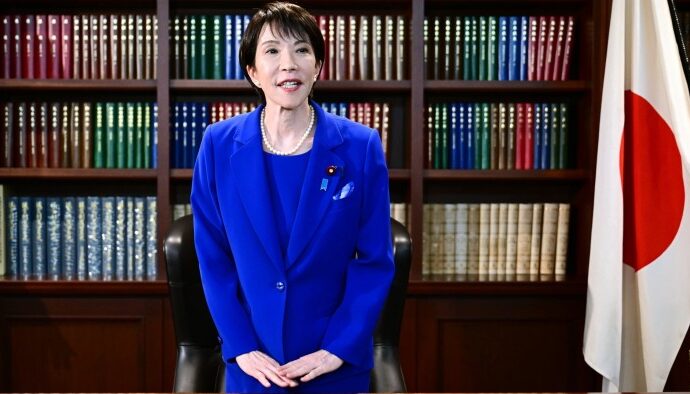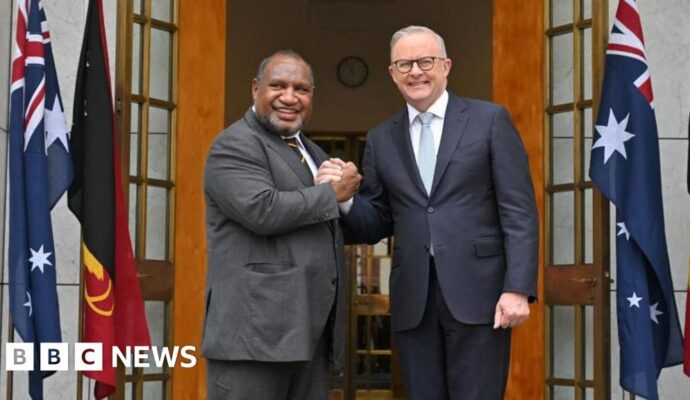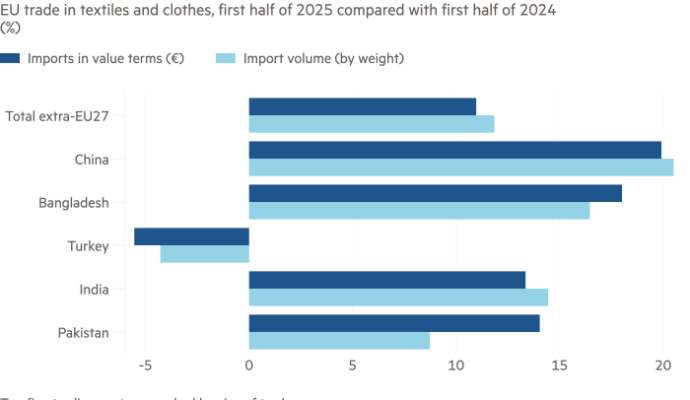Unlock the Editor’s Digest for free
Roula Khalaf, Editor of the FT, selects her favourite stories in this weekly newsletter.
Nvidia shares climbed 4 per cent on Tuesday after the Trump administration relaxed restrictions on exporting a key artificial intelligence product designed for the Chinese market.
In a boost for the leading AI chipmaker, Nvidia said it had received assurance from the US government that it would approve licences for the H20 chip, and that it hoped to resume deliveries “soon”.
It also announced a new China-specific AI chip that it said was “fully compliant” with export rules.
Shares in Nvidia, which last week became the first company to reach a $4tn market capitalisation, were up 4 per cent at $170.22 in early trading on Wall Street.
Nvidia reported a $4.5bn charge in its April quarter to account for excess inventory after Washington had blocked sales of the H20 to China that month. The chip had been designed to comply with a previous version of export controls on advanced semiconductors.
Nvidia chief Jensen Huang has met President Donald Trump and policymakers this month, as part of intense lobbying in the US and Chinese capitals by the $4tn company. He has warned that America risks forfeiting its leadership in AI to Chinese companies, including Huawei, if it cuts off exports of critical technology.
“It’s really important that American companies are able to compete and serve the market here in China,” Huang told reporters on a visit to Beijing on Tuesday.
Huang is there to meet government officials and customers to update them on how his company plans to address the local market. He is seeking talks with Premier Li Qiang, who would be the most senior Chinese official he has met to date, as the chief executive takes on an increasingly diplomatic role, navigating US-China tech competition.
Nvidia also announced plans to release a new graphics processing unit (GPU) for the Chinese market that is compliant with US export controls. Last week, the FT reported Nvidia planned to release an updated chip designed for China, based on its Blackwell RTX Pro 6000 processor. Blackwell is the latest generation of its chips, succeeding Hopper, on which the H20 was based.
Such chips are especially useful for industrial clients who need to render visuals for simulations. They have also become a popular option for developers to run small Al models, given the difficulties of purchasing the company’s more advanced chips tailored for heavy Al workloads.
The new RTX Pro GPU would lack Nvidia’s most advanced technologies, such as high bandwidth memory and NVLink, which improves interconnections for faster data transfers, the FT earlier reported.
Huang said the new chip was “ideal for digital twin AI for smart factories and logistics”.
The H20 chip is less powerful than its top-of-the-range GPUs, but it still saw strong demand in China, particularly after the release of DeepSeek’s R1 model in January caused a surge in AI usage in the country.
China’s leading AI players, including ByteDance, Alibaba and Tencent, were big buyers of the H20 earlier this year before the ban took effect.
Chinese clients were busy calling Nvidia on Tuesday to understand how to apply for the licence, according to a person with knowledge of the discussions. Despite Washington’s assurances, there was still significant concern about uncertainties, including how long it would take for H20 orders to be delivered, the person said.
Meanwhile, there is pressure from Beijing to increase purchases of local AI chips from Nvidia’s rivals, including Huawei and smaller companies such as Cambricon and Biren.
But Nvidia remains the preferred option for AI workloads, given its strong software ecosystem that makes it easier to train and run models.
The White House and the US Department of Commerce did not immediately respond to requests for comment.


